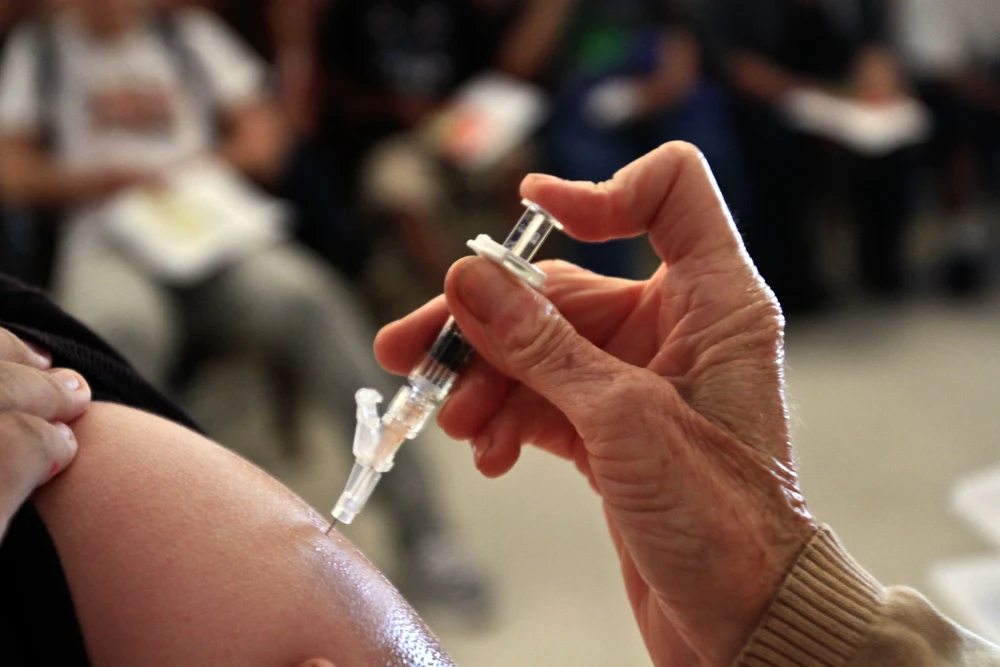
The U.S. is currently facing a significant rise in whooping cough (pertussis) cases, with reports showing over four times as many infections compared to last year. This surge, the highest in a decade, has raised alarms among health experts, particularly regarding the risks posed to unvaccinated adolescents.
As of 2024, the CDC has confirmed 14,569 cases of whooping cough, a dramatic increase from the 3,475 cases reported in 2023. These numbers reflect the highest incidence since 2014, indicating a troubling trend in the spread of this contagious respiratory infection.
Vaccine Hesitancy and Its Consequences
Experts attribute the outbreak partly to increased vaccine hesitancy that has developed since the COVID-19 pandemic. Dr. Tina Tan, president-elect of the Infectious Diseases Society of America, explains that many children are unvaccinated, leading to higher infection rates. The DTaP vaccine, which protects against diphtheria, tetanus, and pertussis, is effective against the latter but its efficacy wanes over time.
Discussions are underway among FDA advisors regarding the development of more effective and long-lasting whooping cough vaccines. In the meantime, health authorities recommend booster shots every 10 years, starting in the tween years as children enter middle school.
The recent rise in cases is primarily seen among tweens and teens, who may not have received necessary boosters. In states like Wisconsin, confirmed cases are ten times higher than last year, with adolescents aged 11 to 18 accounting for nearly half of all reported cases.
Regional Outbreaks of Whooping Cough
Specific areas are experiencing severe spikes in whooping cough cases. Connecticut has reported 111 cases in 2024 compared to just 11 the previous year, while outbreaks have also been noted in Pennsylvania and North Carolina. Doctors warn that many cases are going undetected, with estimates suggesting that for every reported case, ten may be unrecognized.
Due to lingering coughs, many individuals may seek medical attention only to be sent home after testing negative for flu or COVID-19. This misdiagnosis allows whooping cough to spread unnoticed for weeks, complicating containment efforts.
Risks of Whooping Cough
While older children and healthy adults may experience mild symptoms, the greatest concern lies with newborns. Infants infected with whooping cough often face severe complications, including respiratory failure, and may require hospitalization.
To combat the spread of whooping cough, vaccination remains crucial. Pregnant women are advised to receive a booster during their third trimester, providing protection to their newborns. The CDC recommends that babies begin their vaccination series at 2 months, with follow-ups at 4 and 6 months, along with additional shots before age 2 and prior to kindergarten.
Conclusion
The rise in whooping cough cases highlights the urgent need for vaccination awareness and action. Ensuring that adolescents and vulnerable populations are up-to-date with their immunizations is critical for public health and preventing future outbreaks.
Source: https://www.nbcnews.com/health/health-news/whooping-cough-spike-unvaccinated-teens-rcna171781
More: https://exploration-echo.com/2024/09/25/iron-deficiency-awareness-a-path-to-better-health/